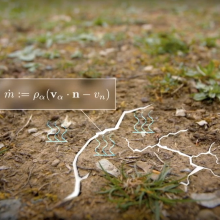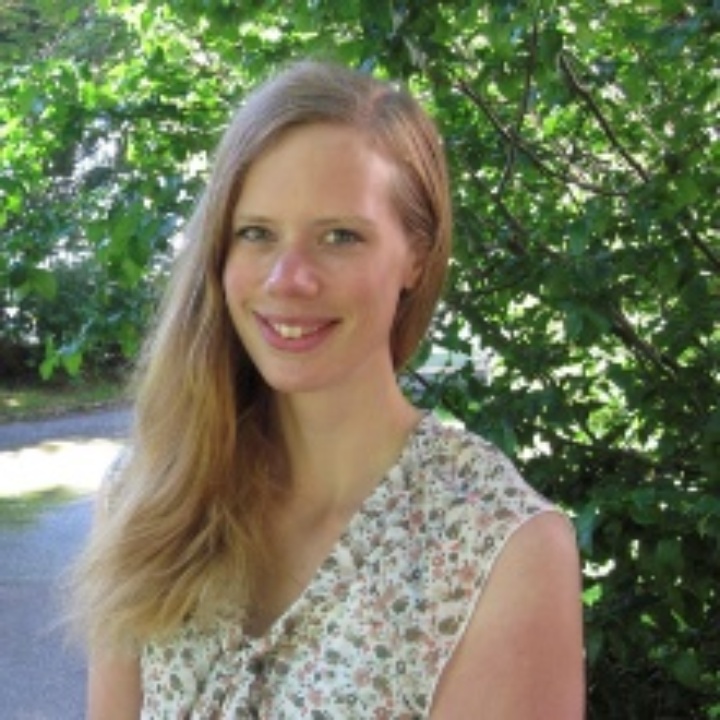“For the University of Stuttgart, ‘bold research’ means daring to take risks, pursuing unconventional approaches and conducting risky experiments – in a university culture which strives to be interdisciplinary and open to new and creative ideas”, says Rector Wolfram Ressel. Taking part: Carina Bringedal, Junior Professor at the Institute for Modelling Hydraulic and Environmental Systems, Department of Hydromechanics and Modelling of Hydrosystems (IWS-LH²)
“In order to deal with the big challenges of our time, from climate change to social inequality, we need to do more to overcome the boundaries between departments and disciplines.” Baden-Württemberg's Minister for Science, Research and the Arts Theresia Bauer was also a guest at the strategy dialog. “As far as I’m concerned, bold research is more than a buzzword. It is more than a concept being followed by our universities and research institutes. For me, bold research has been a defining objective and model of science policy for the last ten years”, she says. She says that a number of projects have already been launched because somebody reached for the stars with a promising idea. As examples of this, the minister names the ARENA 2036, the Cyber Valley and the “Mobility of the Future” innovation campus at the University of Stuttgart.
The second strategy dialog offers researchers the opportunity to meet online and exchange ideas. “It’s about going on a journey together as a team. Communicating and having conversations is important so that we can support one another and develop bold ideas”, says Felix Rundel, co-founder of the agency futurehain, who moderates the event. Young scientists present their ideas in small groups and then discuss them with experienced professors. Here is the short presentation of the idea by Jun.-Prof. Bringedal of IWS-LH²:
Instability of soil due to salt water
How does mathematics help to solve ecological problems? Carina Bringedal, Junior Professor at the Institute for Modelling Hydraulic and Environmental Systems (IWS), has the answer to this. She is carrying out research into the salt content of water. In Mediterranean countries such as Tunisia, water from the top layers of soil quickly evaporates when the sun shines on it. The salt contained in the water remains in the soil, and the salt concentration in the residual water of the soil increases. This makes the soil infertile for plants and no longer usable for agriculture. Bringedal is investigating the density of the water mathematically, since this depends on the concentration of the salt. “If the water has a high salt content, the density is higher”, says the scientist. “A denser liquid emerges at the top of the soil than at the bottom. A system is created which becomes unstable due to the influence of gravity.”
Due to the unstable system the liquid can be made to flow downstream, which transports the high salt concentration away. Bringedal is looking into the circumstances under which the instabilities arise. “They depend on the permeability of the soil”, she says. “How easy is it for the water to flow? And how high is the evaporation? I’ve found out that a lot of parameters are important in predicting whether any signs of instability will appear.”
Bringedal's research idea is attracting a lot of interest among the other participants in the strategy dialog. Prof. Rainer Helmig from the Institute for Modelling Hydraulic and Environmental Systems adds that the salt content in water is not just a problem for soils but also for buildings. In Mediterranean cities, the salt in the concrete walls of buildings has an impact on the buildings’ lifespan. Big changes in salt concentration also lead to big differences in the density of the water, which results in instability. He adds that researchers working on a project in Israel are trying to control the evaporation of water by using a membrane. Bringedal also wants to find out how she can prevent instability. “It was very helpful to get feedback from other professors”, she says. “They have a lot of contacts with other researchers, and they know who to get in touch with if you want to learn more.”
Strategy dialog encourages interdisciplinarity
The University of Stuttgart supports scientists in overcoming the challenges of the future together – in interdisciplinary cooperations, backed by personal and specialist networks and in the spirit of the “Stuttgarter Weg” (Stuttgart Way). In 2020, the focus of the strategy dialog was on sustainability. One result of this is the Green Office, which has now opened. The second strategy dialog emboldens researchers to take risks and follow unconventional approaches. “Only those who dare to fail greatly can ever achieve greatly”, says the Rector, quoting Robert F. Kennedy, underlying his commitment to creating a culture in which scientists can deal with setbacks in a more relaxed way. The strategy dialogs are held as part of a series. They build on the positive experiences in the university-wide SWOT workshops prior to the application for funding as a University of Excellence, and are one of the “university allowance” measures from the German Research Foundation (DFG).
| Contact | Jun.-Prof.in Carina Bringedal, Ph. D., Institute for Modelling Hydraulic and Environmental Systems (IWS-LH²), Pfaffenwaldring 5a, D-70569 Stuttgart, +49 711 685-66332, Fax: +49 711 685-60037, carina.bringedal@iws.uni-stuttgart.de |
|---|



